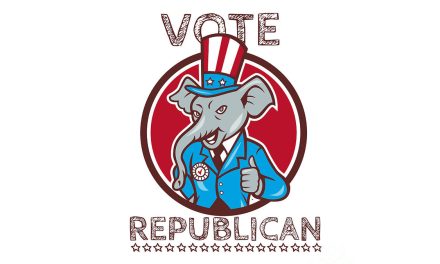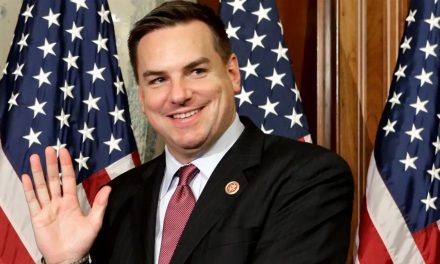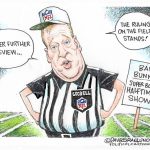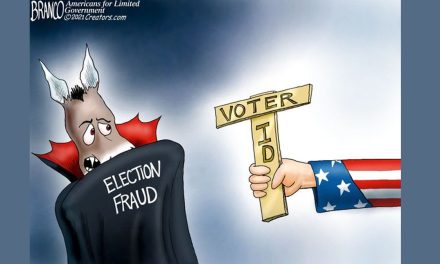
Are We Giving up Liberty to Purchase Security?

Benjamin Franklin once said: “Those who would give up essential Liberty, to purchase a little temporary Safety, deserve neither Liberty nor Safety.”
In the corridors of power, a heated debate has ignited over the renewal or repeal of a contentious law that is believed to be crucial in the fight against terrorism, cybercrime, and foreign espionage. Section 702 of the Foreign Intelligence Surveillance Act (FISA) is at the center of this controversy, as it grants the National Security Agency (NSA) the power to intercept communications of foreigners without a warrant, even if those communications pass through networks or servers located within the United States. FISA is scheduled to sunset on December 31, 2023
The existence of this program, known as PRISM, was unveiled in 2013 by NSA whistleblower Edward Snowden, whose leaks suggested that the agency was monitoring the emails and phone calls of numerous Americans. Subsequent investigations revealed that the program primarily targeted foreigners on foreign soil, but some Americans unintentionally became part of the data collection due to the nature of internet technology. Instances of abuse, although mostly by the FBI, further eroded public trust in the program.
Republicans, fueled by their distrust of the FBI and the political motivations behind investigations into former President Donald Trump, have grown increasingly opposed to the program. If Congress fails to extend Section 702 by the end of the year, it will expire. However, the Biden administration, citing its effectiveness in combating terrorism and cybercrime, is advocating for its renewal.
Section 702 was born out of the need to adapt to the digital age and the challenges it posed to foreign surveillance. Prior to its implementation, the Foreign Intelligence Surveillance Act of 1978 required court-concurred evidence of “probable cause” for domestic surveillance, which was difficult to apply to the borderless nature of cyberspace. The 2008 amendment to FISA introduced Section 702, allowing surveillance of individuals “reasonably believed to be located outside of the United States,” with the assistance of communication service providers.
After Snowden’s leaks, President Barack Obama appointed a special commission to investigate the program. The commission found no evidence of illegality or abuse of authority, and regulations were put in place to ensure compliance and prevent indiscriminate surveillance. The commission also confirmed that Section 702 intercepts had thwarted multiple terrorist operations.
Since its last renewal in 2018, Section 702 has faced both positive developments and challenges. On one hand, it has been instrumental in combating not only terrorism but also cybercrime and foreign espionage. On the other hand, official audits have revealed instances of abuse, particularly by the FBI, in querying Section 702 data without proper justification.
These concerns over privacy and potential violations of the Fourth Amendment have amplified the opposition to Section 702 among civil liberties advocates and Republicans aligned with Trump’s skepticism of security agencies. Privacy advocates argue that the law enables the collection of Americans’ messages without a warrant, while critics point to the “backdoor search loophole” as a violation of constitutional rights.
As the deadline for renewal approaches, the Biden administration is set to declassify case studies to demonstrate the program’s effectiveness in countering threats. Meanwhile, Republicans are capitalizing on the public’s distrust of surveillance programs and demanding stricter limits or outright abolition of Section 702.
In this clash between security and civil liberties, the fate of Section 702 hangs in the balance. As Congress navigates the complexities of renewing or repealing this law, the debate surrounding NSA mass surveillance and its potential impact on free speech and privacy rights continues to unfold, reflecting the broader tensions between national security and individual liberties in the digital age.
Taking a step back and looking at this from the justifiably paranoid standpoint of our founding fathers who whose biggest fears were of oppression, this is both sad and alarming. We have witnessed the enactment of legislations enabling intelligence agencies to conduct surveillance on American citizens without due process, observed numerous instances of these powers being misused for political motives, and now our political figures are proudly touting our surveillance efforts on innocent individuals in the pursuit of potential wrongdoers. It is difficult to conceive of a reality more surreal than this.





























IMO, I think the FISA topic is always important to review ever since we opened the doors on privacy post 9/11 when REPUBLICANS invented and championed The Patriot Act signed into law by Bush in 2001. Democrats supported; however, most nays were Democrat too. Hillary supported. Twice. Since then, Democrats and Republicans have supported the law, over and over. The FISA law was similar, first signed by Bush in 2008, last update signed into law by Trump in 2017 —- and everyone in between signed some part, or update, as well.
Combined, they serve as a big package of law that feeds the famous Franklin quote in that indeed, we sacrificed our privacy (and you can call that liberty) for a higher level of security. Much privacy was lost, other rights too. In the beginning, we were even “vanishing” people without due process if suspected of possible terrorist connections.
One of the major obstacles to liberty is in the area of surveillance where, because of The Patriot Act and FISA, anything goes when it comes to foreign snooping based on these. Warrantless taps and such all allowed for non-US citizens overseas, or even in the US. Or expedited warrants that with what seems like rubber-stamped judicial approval. Where the rub to citizens comes in is when the other party on the call is a US Citizen, can you still listen? And with technology that Franklin could never even dream of, it gets really fun. We even record basically everything, every call, every email, but, according to law, can’t look without a warrant —- but the info is always there, the risk is always there. Every day, we record close to 2 billion calls and emails.
It’s one thing to snoop on comrade Putin’s email cuz he’s a furner and not a citizen so ha ha on the bill of rights. But what happens when Yahoo stores your email on overseas servers. Is it foreign? How about other forms of info that you don’t even know are not stored in the US? It’s a dangerous area, and as a country built as a bastion of free speech, privacy, etc. the law most certainly trades privacy for supposed safety. And I like it. Why? Because I want to stop terrorism before it happens and IF I desire privacy, I can still get it. Mostly, I could care less about this privacy, let them peek all they want at me. My biggest risk is they use it to pierce the Frank Stetson nom de plume which is not that big a risk.
But as another fantastic fantasy yet fabulous Frank, as in the prophet Commissioner Frank Reagan said: it’s not the things you stop that matter, it’s only the one you miss. And therein lies the rub. No one want to screw with this stuff and be the one who voted for the next 9/11 and most are willing to give up liberties to avoid that. I actually support heavy snooping, UK-level camera surveillance, and more. My issue is being sure we provide the proper oversight, and as we saw with the Carter Page FISA that promoted the Trump-Russia investigation, perhaps oversight on the overseers. Cuz that shouldn’t have happened, but I’m glad we have the process; just need to fix it so we don’t turn that Page again. I remember another case, in the aftermath of 9/11 where a girlfriend turns in boyfriend and he is basically vanished without due process as a person of interest suspected of terrorist ties. He’s vanished, losses business, and turns out — girlfriend is crazy pissed and he’s a Muslim.
Sounding a little like Arlo Guthrie, I will say: “but that’s not why I write this. What I really came here to say was…….you can get anything you want at……” OR:
Using Franklin for visionary guidance as if he could foresee the conundrums in privacy created by technology is, well, being Frank, frank, or even frankliny — stupid. Of course Franklin wasn’t even in the ballpark with The Patriot Act or FISA.
Agreed, Benjamin Franklin said: “Those who would give up essential Liberty, to purchase a little temporary Safety, deserve neither Liberty nor Safety.” Probably without the secondary use of caps. Sounds spot on and ominous to the topic at hand — whether FISA or Patriot Act. But really folks, do you think Franklin was talking about anything close to the topic at hand?
Franklin wasn’t even close to the topic. Franklin is talking about a dispute with the PA State Government and the Penn family, who at that time ruled PA from across the Ocean, or at least was the major power broker. The State, duly elected by the people, was wanting to tax Penn lands to cover the French n Indian War and the Penns were attempting to cheat the legislative process, to skirt the due process of law, using their pecuniary power, to force the Governor to veto. The safety noted was not from prying eyes, not to secure privacy, not a communications issue, or an issue of warrantless activities, but to get money to buy arms to protect from Indians killing them… And the Penn’s hated the tax but were willing to purchase a little, temporary safety, via a one-time lump amount. FYI: since the war lasted over seven years, I am pretty sure Franklin nailed it as to the Penns trying to get off cheap at the potential cost of citizen’s lives.
It was not Franklin asking for security or privacy. Nor was the State. It was the State asking to be able to tax in order to wage war. It was about the legitimacy of the State to tax. The quote is about granting the State the ability to tax so it could buy security, a lot of it, for as long as it was needed. And I am sure when spending the money to kill the French and Indians, the concept of protecting privacy would never enter their minds.
IOW —- it actually means almost the opposite of what Daniel, and many others, intend today. Many others do what Daniel did. There’s even the Ben Franklin Caucus in the Virginia legislature which is really funny since this quote has nothing to do with privacy that is the caucus mission.
There is no way Franklin could conceive of today’s communication networks, privacy, catching criminals, avoiding terrorism, and all the issues therein. If he was alive today, given a month to study, he probably could not comment intelligently on the subject. That does not make the quote unimportant or Franklin either. Franklin was doing the real job of governing and unlike our modern use of the quote in order to spin a topic as if Franklin himself was talking on FISA. Instead, Franklin had a real life and death issue in front of him. He may not have even cared about the tax. He most certainly cares about the rule of law and the legitimacy of the legislation, by the people and for the people, to create laws —- even taxation laws. And laws are to be obeyed equally for rich and poor alike, no special dispensation for the Penns. And he is telling us loud and clear, it is a terrible idea to trade defense, his essential liberty here, for a one-time temporary bit of safety, a lump sum payment from the Penns. It just does not have anything to do with privacy. Not even close to the concept of FISA.
And now you know the rest of the story. Anyone want the history on “the tree of liberty?”
My understanding of this law is that it allows NSA to collect metadata and not actual conversations. I quite frankly don’t care who knows who I called (and really don’t have much concern over the actual conversations either). It seems that if you have real objections about these observations, then maybe you are concerned about your actions. It’s how this information is potentially used that matters, and that is where the focus should be…
You are kind of correct: https://www.hrw.org/news/2020/03/05/us-end-bulk-data-collection-program#:~:text=The%20USA%20Freedom%20Act%20prohibits,detail%20records%20(CDR)%20program.
These things have changed over time as well.
I agree, I could care less, listen away, but all should agree that our freedom and liberty is indeed lowered by these laws. I just call it life in the big city, and IF needed, I am sure I can avoid. Unlike the 1.6 rocket scientists, I do not post myself on the internet breaking the law…….
Mike does F stand for fag?